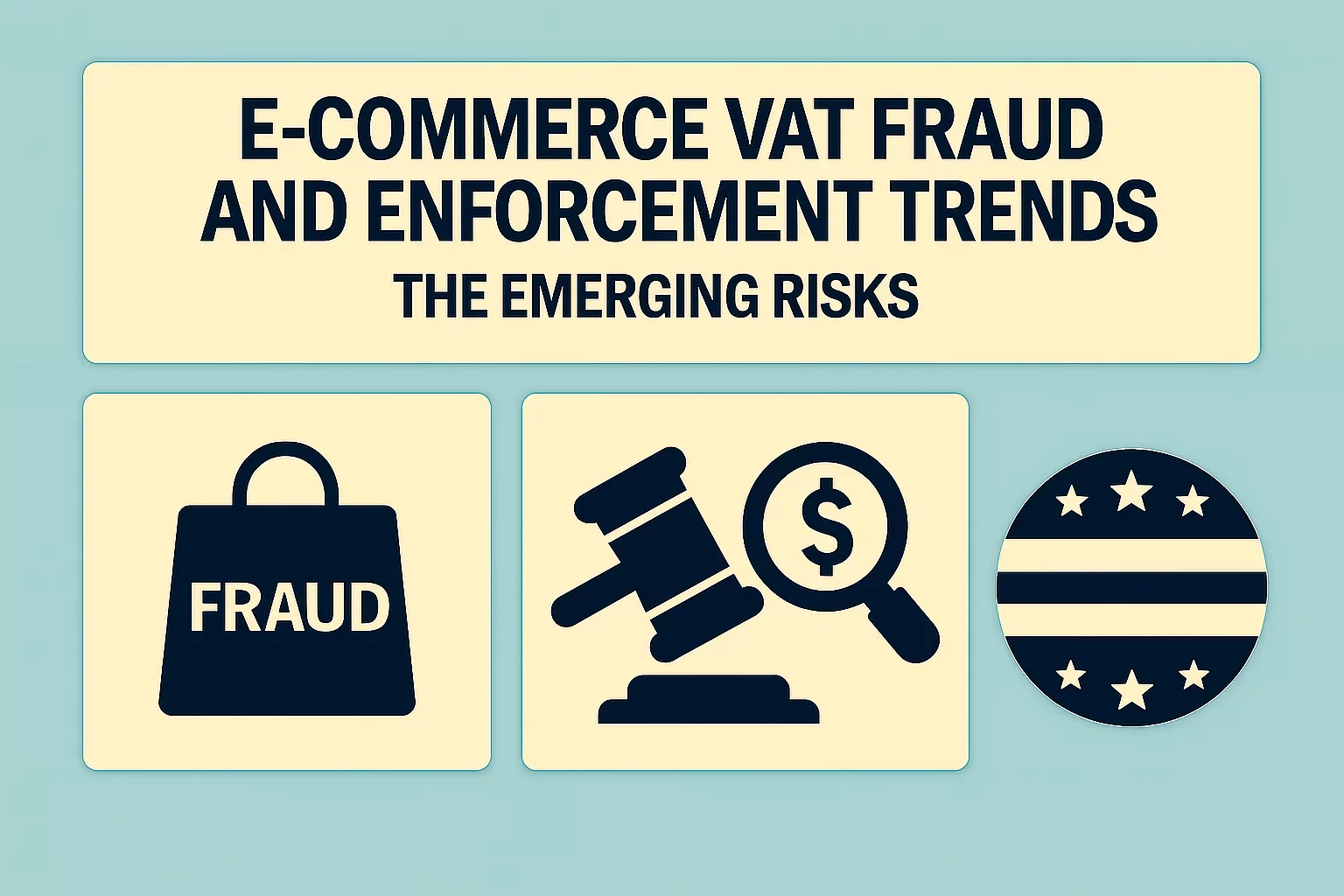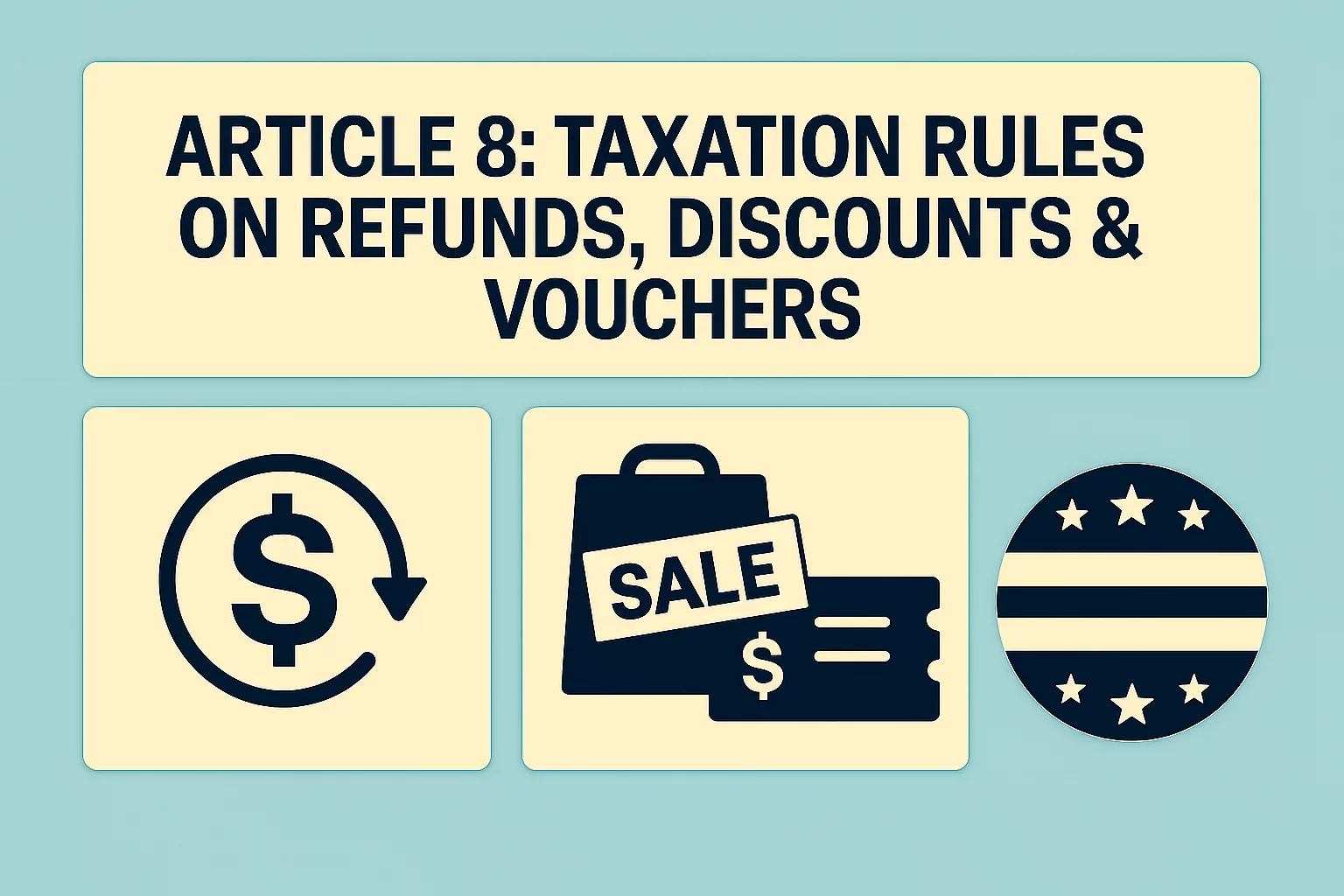US-amerikanische E-Commerce-Unternehmen ebneten den Weg für den modernen Online- und grenzüberschreitenden Handel. Während US-Unternehmen wie Amazon oder eBay die alltäglichen Einkaufsgewohnheiten der Verbraucher völlig verändert haben, sind chinesische Unternehmen wie Alibaba, das zu den frühen Pionieren der E-Commerce-Expansion gehörte, und nicht Temu, weiterhin dabei, die E-Commerce-Branche zu verändern.
Die Zunahme der Online-Transaktionen und die Schaffung einer nahezu grenzenlosen Einkaufsumgebung haben zur Einführung eines neuen rechtlichen Standards für die Einhaltung der Umsatzsteuerpflicht geführt, der als wirtschaftlicher Nexus bekannt ist. Im Jahr 2018 veröffentlichte der Oberste Gerichtshof der USA eine bahnbrechende Entscheidung im Fall South Dakota gegen Wayfair Inc., die gemeinhin als Wayfair-Urteil bezeichnet wird und die Spielregeln für E-Commerce-Unternehmen, Online-Verkäufer und Verbraucher neu gestaltet.
Hintergrund: Umsatzsteuer vor Wayfair
Vor dem Wayfair-Urteil wurde die Einhaltung der US-Verkaufssteuer in erster Linie durch das Urteil des Obersten Gerichtshofs von 1992 in der Rechtssache Quill Corp. gegen North Dakota (das Quill-Urteil) geregelt. Der Supreme Court von North Dakota entschied, dass ein Bundesstaat von einem Einzelhändler nur dann verlangen kann, dass er die Umsatzsteuer erhebt und abführt, wenn er einen substanziellen Nexus, d. h. eine physische Präsenz in diesem Bundesstaat hat. In der Regel bedeutet physische Präsenz, dass Unternehmen ein Büro, ein Lager oder Angestellte in dem Staat haben.
Die Entscheidung hatte weitreichende Folgen und trug dazu bei, ein ideales Umfeld für die Entwicklung und das Wachstum der E-Commerce-Branche zu schaffen. Mit dieser Regelung hatten Online-Händler die Möglichkeit, Waren an Verbraucher in den USA in Staaten zu verkaufen, in denen sie keine physische Präsenz hatten, ohne dass sie lokale Verkaufssteuern erheben und abführen mussten. Die Verbraucher waren verpflichtet, die Gebrauchssteuer für Einkäufe bei Verkäufern außerhalb des Bundesstaates zu melden und abzuführen.
Dies führte zu wachsenden Steuereinnahmeausfällen für die Bundesstaaten und zu ungleichen Wettbewerbsbedingungen für stationäre Einzelhändler, die verpflichtet waren, Steuern zu erheben, während ihre Online-Konkurrenten dies nicht mussten. Im Jahr 2017 war die Diskrepanz so groß geworden, dass sie nicht mehr ignoriert werden konnte, was South Dakota dazu veranlasste, das Erfordernis der physischen Präsenz durch einen Rechtsstreit gegen Wayfair, Inc., Overstock.com und Newegg anzufechten, die drei größten Online-Händler, die zu diesem Zeitpunkt keine physische Präsenz in diesem Bundesstaat hatten.
Wayfair: Ein neues Kapitel in der E-Commerce-Umsatzsteuer
Am 21. Juni 2018 veröffentlichte der Oberste Gerichtshof der USA seine endgültige Entscheidung in der Rechtssache South Dakota gegen Wayfair Inc. und hob damit das Quill-Urteil auf. Damit änderte der Supreme Court die Regeln für die Umsatz- und Gebrauchssteuer erheblich und erlaubte es den Bundesstaaten, von entfernten oder außerhalb des Bundesstaates ansässigen E-Commerce-Unternehmen, die keine physische, sondern eine wesentliche wirtschaftliche Präsenz haben, die Erhebung und Abführung der Umsatzsteuer zu verlangen.
Die Gründe für diese historische Entscheidung finden sich in mehreren Schlussfolgerungen, die im Wayfair-Urteil dargelegt sind. Der Oberste Gerichtshof kam zu dem Schluss, dass die im Quill-Urteil aufgestellte Regel der physischen Präsenz völlig veraltet und künstlich ist, wenn man sie auf die Realitäten des modernen elektronischen Handels und der digitalen Wirtschaft anwendet.
Dies wurde durch Daten untermauert, die zeigen, dass der Versandhandel in den USA im Jahr 1992 einen Umsatz von 180 Mrd. USD verzeichnete, während der Einzelhandelsumsatz im Jahr 2017 allein im elektronischen Handel fast 453,5 Mrd. USD betrug. Darüber hinaus stellte der Oberste Gerichtshof fest, dass den Bundesstaaten durch die Präsenzregel jährlich zwischen 694 Millionen und 3 Milliarden US-Dollar an Umsatzsteuereinnahmen entgehen.
Das Wayfair-Urteil bestätigte das Gesetz von South Dakota über die wirtschaftliche Nähe, wonach Verkäufer außerhalb des Bundesstaates Umsatzsteuer erheben müssen, wenn sie im Kalenderjahr mehr als 100.000 USD Umsatz oder 200 separate Transaktionen im Bundesstaat getätigt haben. Andere US-Bundesstaaten folgten dem Beispiel South Dakotas und begannen mit der Verabschiedung oder Durchsetzung ähnlicher Gesetze, wodurch sich die steuerlichen Verpflichtungen für die E-Commerce-Branche rasch änderten.
Auswirkungen für E-Commerce-Unternehmen
Die unmittelbarste Auswirkung der Entscheidung des Obersten Gerichtshofs war die Ausbreitung von Gesetzen zur wirtschaftlichen Verflechtung auf Ebene der Bundesstaaten. Jeder US-Bundesstaat hat seine eigenen Schwellenwerte, Regeln und Durchsetzungsmechanismen eingeführt und umgesetzt, wodurch ein Flickenteppich von Einhaltungsverpflichtungen entstand, der neue Systeme, Prozesse und in vielen Fällen auch professionelle Beratung erforderte.
Die Auswirkungen der Regeln zum wirtschaftlichen Nexus können je nach Art des Verkäufers oder Vermittlers aus unterschiedlichen Blickwinkeln betrachtet werden.
Entfernte oder außerhalb des Staates ansässige Verkäufer
Unternehmen, die keine physische Präsenz in einem Staat haben, aber Waren und Dienstleistungen an Verbraucher in diesem Staat verkaufen, sind Fernverkäufer oder Unternehmen außerhalb des Staates. Als unmittelbare Folge des Wayfair-Urteils müssen diese Unternehmen nun ihr Verkaufsvolumen in jedem Bundesstaat genau überwachen, um festzustellen, ob sie die Schwellenwerte für den wirtschaftlichen Nexus überschreiten.
Während viele US-Bundesstaaten den Standard von South Dakota von 100.000 USD und 200 Transaktionen übernommen haben, gelten in anderen Staaten deutlich andere Schwellenwerte. In einigen Bundesstaaten liegen die Schwellenwerte für den Gesamtumsatz bei 200.000 oder 500.000 USD, während es in anderen keine Transaktionsschwelle gibt.
Verkäufer, die diese Schwellenwerte überschreiten, müssen sich registrieren lassen, die entsprechenden landesweiten und lokalen Umsatzsteuern einziehen, die Anforderungen für die Abgabe von Steuererklärungen erfüllen und die eingezogenen Steuern abführen. Die Erfüllung dieser Anforderungen kann vor allem für kleine und mittelgroße Verkäufer eine Herausforderung darstellen, die nun mit neuen Verwaltungslasten konfrontiert sind. Diejenigen, die sich früher nur mit der Umsatzsteuer in ihrem Heimatstaat befassen mussten, müssen sich nun möglicherweise mit der Einhaltung der Vorschriften in Dutzenden von Gerichtsbarkeiten befassen, von denen jede ihre eigenen Steuersätze, Regeln für steuerbefreite Gegenstände und Anforderungen an die Einreichung von Steuererklärungen hat.
Online-Marktplatz-Verkäufer
Während Verkäufer aus dem Ausland ihre Waren und Dienstleistungen in der Regel über ihre Websites, Online-Shops oder ähnliche Kanäle anbieten und verkaufen, nutzen Online-Marktplatz-Verkäufer in erster Linie die Dienste von Online-Marktplätzen wie Amazon, eBay oder Etsy, um Verkäufe zu tätigen. Die Regeln für Online-Marktplatz-Verkäufer hängen davon ab, ob sie ihre Verkäufe ausschließlich über Online-Marktplätze oder auch über andere Kanäle abwickeln.
Unter dem Einfluss der Regeln zum wirtschaftlichen Nexus haben die meisten US-Bundesstaaten Gesetze für Marktplatzvermittler erlassen, die die Verpflichtung zur Erhebung und Abführung der Umsatzsteuer nicht dem einzelnen Verkäufer, sondern der Marktplatzplattform selbst auferlegen. Wenn der Verkäufer eines Online-Marktplatzes also nur Verkäufe über einen Online-Marktplatz tätigt, ist in der Regel der Vermittler oder Betreiber des Marktplatzes für die Erhebung, Meldung und Abführung der Umsatzsteuer verantwortlich.
Nehmen wir jedoch an, die Verkäufer auf dem Online-Marktplatz tätigen Verkäufe über Online-Marktplätze und andere Kanäle. In diesem Fall sind sie für die Erhebung, den Einzug und die Abführung der Umsatzsteuer auf Verkäufe außerhalb von Online-Marktplätzen verantwortlich. Im Gegensatz dazu ist ein Marktplatzvermittler für die Erhebung und Abführung der Steuer auf Verkäufe verantwortlich, die über den Marktplatz getätigt werden.
Marktplatz-Vermittler
Marktplatzvermittler werden als Plattformen definiert, die es Drittverkäufern ermöglichen, Waren und Dienstleistungen an Verbraucher anzubieten und zu verkaufen. Genauer gesagt erleichtern sie Verkäufe für Marktplatzverkäufer über Marktplätze und ziehen direkt oder indirekt durch Vereinbarungen oder Absprachen mit Dritten Zahlungen von Verbrauchern ein und leiten sie an die Marktplatzverkäufer weiter.
Diese Plattformen sind nach Wayfair wohl die am stärksten betroffene Gruppe. In Anbetracht ihrer Macht und ihres Umfangs haben die Staaten beschlossen, die Last der Umsatzsteuererfüllung auf diese Plattformen zu verlagern und sie zu verpflichten, die Umsatzsteuer im Namen von Drittverkäufern einzuziehen und abzuführen, sobald bestimmte Schwellenwerte erreicht sind.
Daher müssen Marktplatzvermittler nicht nur die Umsatzsteuer auf ihre Verkäufe erheben, melden und abführen, sondern dies auch für die von ihnen vermittelten Verkäufe tun. Je nach Bundesland müssen sie entweder eine einzige Steuererklärung für alle Verkäufe abgeben oder getrennte Steuererklärungen für ihre Verkäufe und vermittelte Verkäufe einreichen.
Fazit
Das Wayfair-Urteil markiert einen grundlegenden Wendepunkt in der Regulierung der E-Commerce-Branche und in der Art und Weise, wie die staatlichen Steuerbehörden E-Commerce-Unternehmen behandeln. Durch die Festlegung einer neuen wirtschaftlichen Anforderung für die Zwecke der Umsatzsteuer hat der Oberste Gerichtshof den sich entwickelnden Charakter der Wirtschaft anerkannt. Außerdem wurden die steuerlichen Bedingungen für traditionelle und digitale Einzelhändler angeglichen.
Diese Weiterentwicklung des Rechtsrahmens hatte jedoch ihren Preis, nämlich eine höhere Komplexität und einen höheren Befolgungsaufwand für Fernverkäufer, Marktplatzbetreiber und Vermittler. Die Ära nach Wayfair ist eine Ära der Anpassung, in der die Regeln von einem US-Bundesstaat zum anderen erheblich variieren, eine ständige Überwachung erfordern und immer noch als ein sich entwickelndes regulatorisches Umfeld angesehen werden.
Lorem ipsum dolor sit amet, consectetur adipiscing elit, sed do eiusmod tempor incididunt ut labore et dolore magna aliqua. Ut enim ad minim veniam, quis nostrud exercitation ullamco laboris nisi ut aliquip ex ea commodo consequat.
Lorem ipsum dolor sit amet, consectetur adipiscing elit, sed do eiusmod tempor incididunt ut labore et dolore magna aliqua. Ut enim ad minim veniam, quis nostrud exercitation ullamco laboris nisi ut aliquip ex ea commodo consequat.
Lorem ipsum dolor sit amet, consectetur adipiscing elit, sed do eiusmod tempor incididunt ut labore et dolore magna aliqua. Ut enim ad minim veniam, quis nostrud exercitation ullamco laboris nisi ut aliquip ex ea commodo consequat.
Lorem ipsum dolor sit amet, consectetur adipiscing elit, sed do eiusmod tempor incididunt ut labore et dolore magna aliqua. Ut enim ad minim veniam, quis nostrud exercitation ullamco laboris nisi ut aliquip ex ea commodo consequat.
Lorem ipsum dolor sit amet, consectetur adipiscing elit, sed do eiusmod tempor incididunt ut labore et dolore magna aliqua. Ut enim ad minim veniam, quis nostrud exercitation ullamco laboris nisi ut aliquip ex ea commodo consequat.
Lorem ipsum dolor sit amet, consectetur adipiscing elit, sed do eiusmod tempor incididunt ut labore et dolore magna aliqua. Ut enim ad minim veniam, quis nostrud exercitation ullamco laboris nisi ut aliquip ex ea commodo consequat.
Quelle: Supreme Court of the United States - South Dakota gegen Wayfair, Inc., Oberster Gerichtshof von North Dakota - Quill Corp. v. North Dakota, VATabout - US - Herausforderungen für die Steuereinhaltung der ausländischen E-Commerce-Anbieter, VATabout - South Dakota Sales and Use Tax Guide for Retailers & E-Commerce Sellers, Finanzministerium von Washington, Vermont Department of Taxes, Maurer School of Law: Indiana University - Besteuerung von E-Commerce in der Post-Wayfair-Welt, VATabout - Amerikas Steuerleitfäden und Ressourcen


